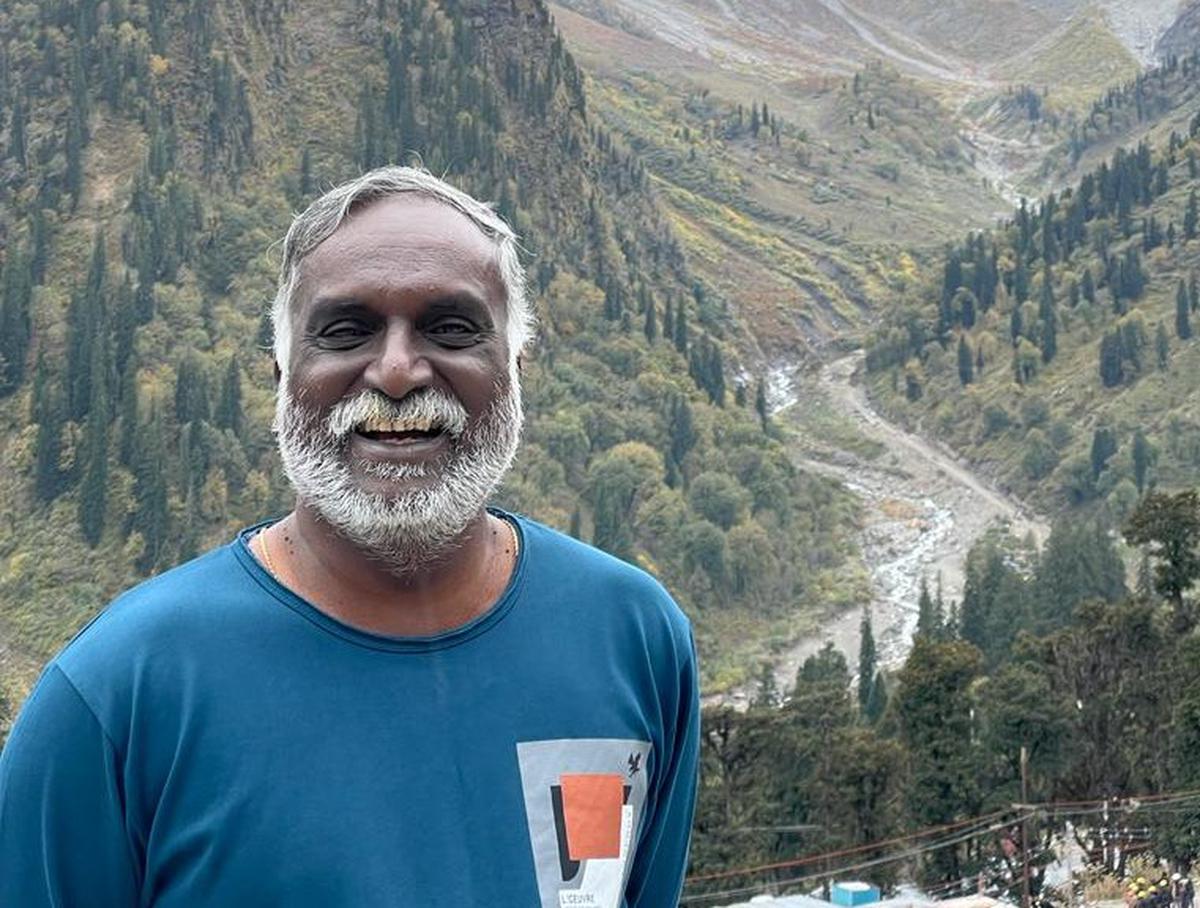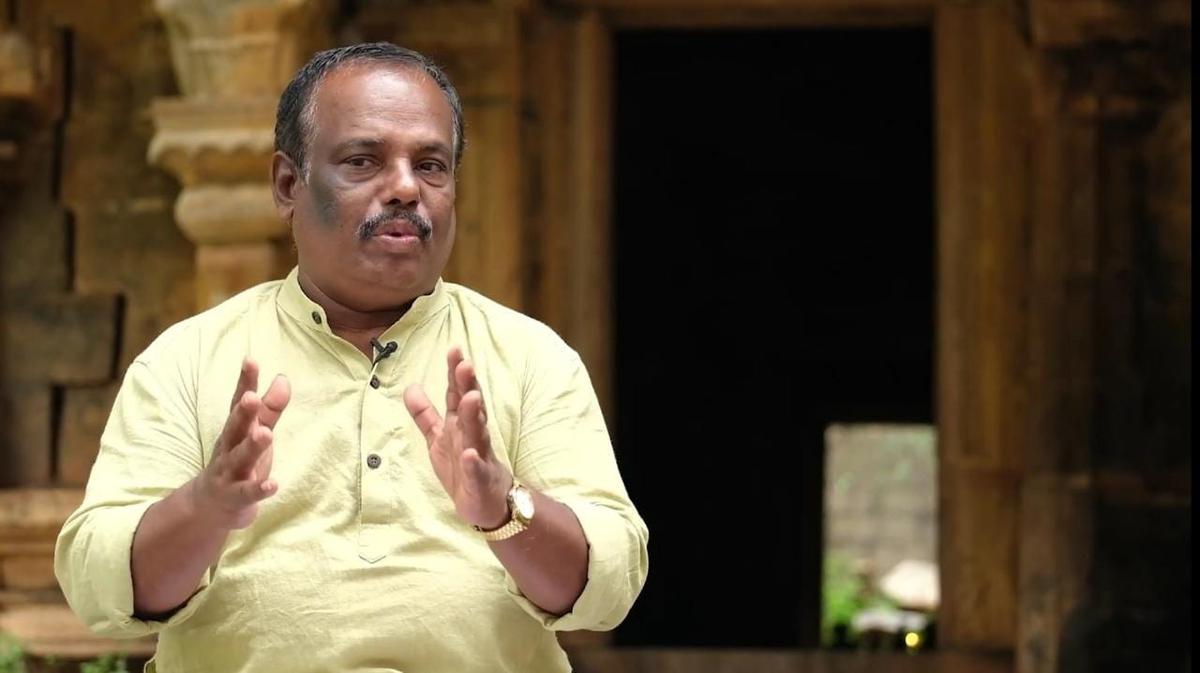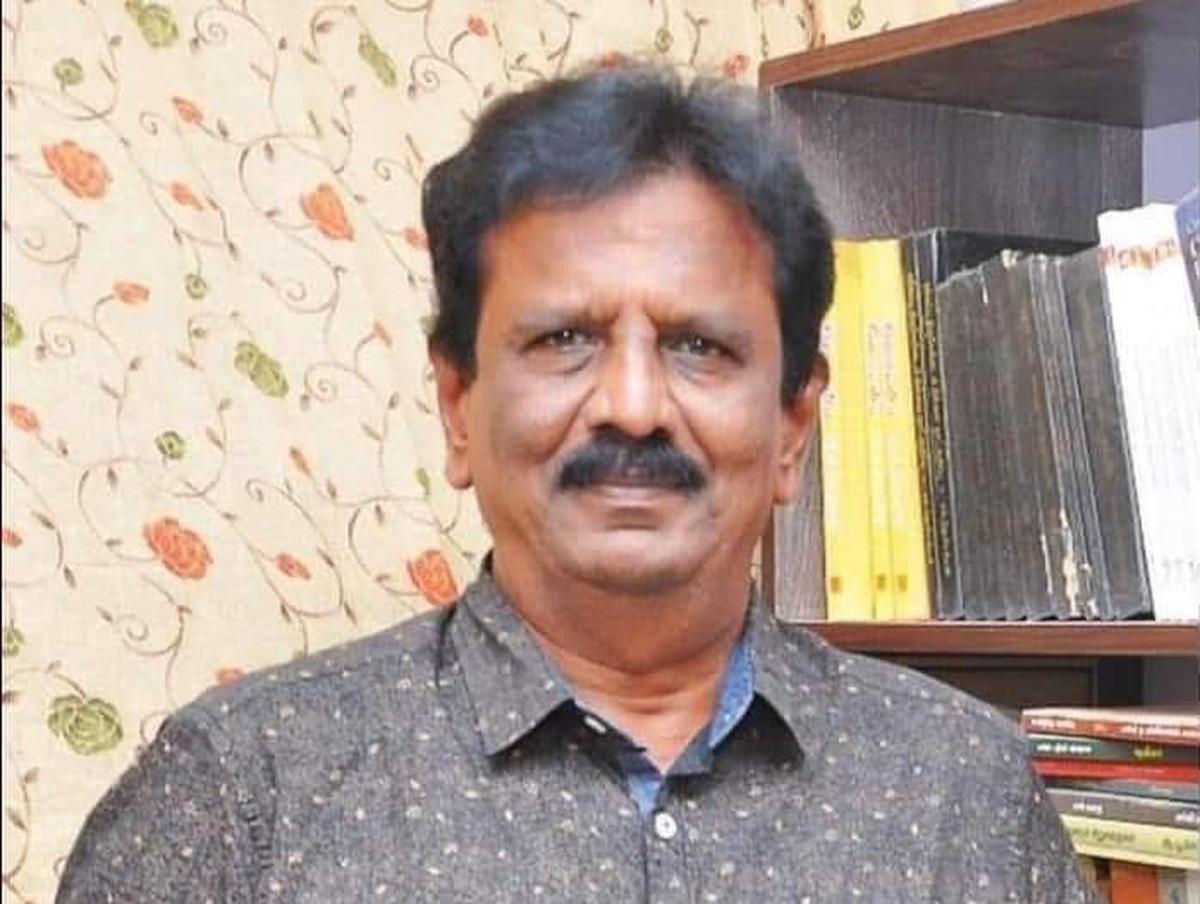[ad_1]
The trend of adapting literary works to the big screen is now booming, thanks to directors like Vetri Maaran (whose recent release Viduthalai: Part 1 was an adaptation of B Jeyamohan’s Thunaivan) and Mani Ratnam, whose magnum opus releasing this week, Ponniyin Selvan 2, is bringing Kalki’s novel to life. However, even with such occasional cross-overs, cinema and literature struggle to find the right symbiosis, and the debate on what makes a film adaptation of a novel successful seems never-ending.
“A lot of these movies, like Viduthalai, are not purely adaptations, but are movies that are inspired by literature,” says writer and literary enthusiast Bava Chelladurai, adding that a short story or a novel often acts as a stimulus or inspiration to find screenplays. “ Vendhu Thanindhathu Kaadu’s source was a short story called Mul by Jeyamohan; however, the film starts where the story ends. So the story was only an inspiration to make a film,” he adds.
Tamil writer Su Venugopal, who says that the two-hour film format struggles to fully flesh out the essence of a novel, has a bone to pick with directors “who use literary works just to quench their desperate need to have a basic story in hand”. Venugopal understands that cinema cannot fully translate the nuances, underlining insights, or scenes detailed with magical realism or the extraterrestrial. “Further, what a novel intuits is something I doubt films can bring about.” But he does wonder why many film adaptations either miss the heart of the novel or struggle in structuring around it, ultimately diluting the essence in the process.
Writer-literary critic Na Murugesa Pandian, on the other hand, feels that cinema need not reflect everything that is being told in the novel, but “should visually tell how the filmmaker perceives the story”. What he has an issue with, apart from mainstream cinema’s stuck-in-a-rut commercial formula, is filmmakers not delving deep into what made them like the novel in the first place. “Screenwriters, filmmakers, and producers need to read more Tamil literature to break the formula,” he says.
Acclaimed writer Imayam dislikes when writers complain about film adaptations of their work: “The written form has its aesthetics and grammar, which shouldn’t be looked for in cinema’s structure. The experience of a novel is very subjective, and so when a filmmaker makes a novel his own, we shouldn’t point that as a mistake.” He adds that it isn’t right for an artist to question another artist once the work is handed over. “Also a producer is a businessman. You cannot lecture about artistry. Cinema is a mass medium and it’s for the common folk; the makers also have a responsibility to convince the common man through their films.”
Further, he says, cinema is a profit-based activity that needs hundreds of people, while “literature is one man’s effort”. This is why Imayam steps back when his novels are made as films. While he is unhappy with how Mu Kalangiyam adapted Peththavan into a propaganda movie in Munthiri Kaadu, he does not comment because he knew this would be the case even before he signed up for it. “I dissuaded him, but he was persistent. So, once I got the money, I told him I wouldn’t talk to him about the novel henceforth.” Imayam also adds that his refraining from involvement will extend to director Vetri Maaran, who is set to make Sellatha Panam into a movie. “Because I believe that it would amount to an interruption to their artistry, and that is uncivilised.”
Bava too believes that a writer should not search for a novel in the film, “or they can just reject such offers from filmmakers,” something that Imayam agrees with as well. “Likewise, filmmakers need not ask a novelist to write the film’s screenplay as well,” adds Bava.
Imayam, writer
If he had to pick his own titles that he envisions would make for great big-screen storytelling, Imayam chooses Sedal and Ippodhu Uyirodirukkiren. The former tells the life of a young woman who was dedicated to the local temple — as a part of a ritual that was prevalent in rural India. “It also speaks about how, after television came to rural India in the ‘80s, cinema destroyed art forms like therukoothu. So, it has history and sociology, and it speaks of how a culture was destroyed.”
He proposes Ippodhu Uyirodirukkiren because, “I believe that the Government should provide education, healthcare, and drinking water for free to all the people, and a film adaptation can spread this message”
Imayam
| Photo Credit:
Special Arrangement
When asked if he could suggest titles written by others for film adaptations, Imayam says that even a chicken grazing a field can become artistic imagery and that it’s more important to see the whats and hows of a film. Imayam is keener on social stories and wonders why Tamil cinema doesn’t have makers with the mindset of making a film like The Elephant Whisperers. “I want someone to make a film on Tamilarasan, the young man who tamed 23 bulls at this year’s jallikattu and revealed that he was attacked by bull owners because he is from a Scheduled Caste. What about the 2016 case where even after High Court’s intervention, Dalits were not allowed to a funeral procession on a common path, only for the police to later bury the Dalit elder? Will they make a film on the 1992 Vachathi case?”
Among his picks, S Balamurugan’s Solagar Thotti, which spoke about the Vachathi case, would be his first. Eriyum Panikadu, Ra. Murugavel’s translation of PH Daniel’s Red Tea is the second as Imayam believes that it wasn’t translated properly to screen in Bala’s Paradesi. “In En Thanthai Balaiah by YB Sathiyanarayana, a young man from the Dalit community — who laid the railway tracks — says his body shivered when he walked down that track…. because it was the first time he walked on a public path.”
According to Imayam, cinema should show you a life that you have not seen before, and Sippiyin Vayitril Muthu (Su Krishnamoorthy’s translation of Bodhisatwa Moitreya’s 1959 novel) and Rajam Krishnan’s 1979 novel Karippu Manigal explore the livelihood in the coastal district of Thoothukudi. Cinimavukku Pona Sithalu by Jayakanthan is another suggestion.
Highlights
- His own works: Sedal and Ippodhu Uyirodirukkiren
- Solagar Thotti by S Balamurugan
- Eriyum Panikadu by Ra Murugavel (Translatation of PH Daniel’s Red Tea)
- En Thanthai Balaiah by YB Sathiyanarayana
- Sippiyin Vayitril Muthu by Su Krishnamoorthy (Translation of Bodhisatwa Moitreya’s 1959 novel)
- Karippu Manigal by Rajam Krishnan
- Cinimavukku Pona Sithalu by Jayakanthan
Bava Chelladurai, writer and literary enthusiast
When asked to put forward titles from his own work, Bava suggests his short stories Neer, Vettai, and Satru.Vettai follows an elderly Narikurava man who returns from a failed hunt only to be hunted by religion. “In Neer, a young woman, from a community of well-diggers known for conning farmers, changes her heart and resolves to finish the job.”
Vilasam by Thiruchendhazhai tops Bava’s nominations on short stories that can be made into films. “In fact, Thiruchendhazhai told me just a couple of months ago that after hearing my story recital of Vilasam, Mr Kamal Haasan told him that he’s making it a movie and that he even paid him an advance,” he informs. Set in Theni, the story about an influential businessman and his now-struggling former master speaks of the cyclical nature of time, how the young take over the new, and more.

Bava Chelladurai
| Photo Credit:
Special Arrangement
The story of his next choice, Su Venugopal’s Ullirundhu Udhatrum Pasi, rattles me. “There have been writers, like Rajendrachozhan, who write about sexual abuse uncompromisingly. In some of Venugopal’s stories, shockingly, sexual abuse happens within the family.” When Bava narrated this story to the late KV Anand — when the latter wanted a story for Mani Ratnam’s Navarasa — it left him shivering. “I agree with Anand; this story cannot be made into a film, but it can inspire a script. The same goes for Iru Sagodharargal by Ku Azhagirisamy.”
Bava also recommends the much-debated novel of Imayam, Koveru Kazhuthaigal. “It is about the Purada Vannans, one of the most-marginalised communities, who wash the clothes of Dalits. While it attracted a lot of criticism, it also paints a stark picture of the life of a community, with the scope of becoming a movie.” Kaakalam by Senthil Jagannathan is his final suggestion.
Highlights
- His own works: Neer, Vettai, and Satru
- Vilasam by Thiruchendhazhai
- Ullirundhu Udhatrum Pasi by Su Venugopal
- Iru Sagodharargal by Ku Azhagirisamy
- Koveru Kazhuthaigal by Imayam
- Kaakalam by Senthil Jagannathan
Su Venugopal, writer
While Bava endorsed Venugopal’s Ullirundhu Udhatrum Pasi, the latter is doubtful as it might be criticised for not adhering to the norms of the Tamil culture. “Though topics of sexual nature are more prone to be consumed these days by the Internet generation, it still has not penetrated deep enough into the mainstream for a commoner.” Moreover, he wonders if the lack of commercial elements, something that mainstream cinema is dependent on, would make it unsuitable for a film adaptation. “The same goes for my novella Koonthapanai,” he adds.

Su Venugopal
| Photo Credit:
Special Arrangement
His novel Nunveli Grahanangal, on the other hand, can be made into a magnum opus like Ponniyin Selvan, he believes. “It explores the subtler details of a new ethnic group, be it their culture, their body language, the dresses they wear, etc. It will introduce a new language and a new world to the Tamil context.” If Tamil cinema is now ready enough to accept a transwoman in a lead role, his Paalkanigal can also make for hard-hitting cinema, he says.
From the top of his mind, Venugopal believes S Chellappa’s short story Muraipen, the revisioned version, can be helmed into a film. His other suggestions include Amma Vandhaal and Sembaruthi, both by Thi Janakiraman.
Highlights
- His own works: Nunveli Grahanangal, Paalkanigal
- Muraipen by S Chellappa
- Amma Vandhaal by Thi Janakiraman
- Sembaruthi by Thi Janakiraman
Na Murugesa Pandian, writer and literary critic
Once, when someone contacted Murugesa Pandian and asked for a story about Madurai, he proposed his own novel Kiramathu Therukkal Vazhiye that shows how Madurai and its neighbouring villages were in the 60s and 70s. “But they wanted to make a film that was full of violence and tension. I don’t like how cinema keeps portraying Madurai as a violent town full of vengeful human beings,” opines the writer-critic.
Murugesa Pandian opines Vinayaga Murugan’s Rajiv Gandhi Salai is a great novel to make a film out of. It explores the life around the titular road, known as the Old Mahabalipuram Road, in Chennai. “Apart from its take on the real estate mafia, the major highlight is its striking display of the life of IT techies who live here; though leading a luxurious life, they struggle with anxiety over job insecurity and are constantly depressed.”
Vinayaga Murugan’s other novel Chennaiku Miga Arugil, and Chellamuthu Kuppusamy’s Iraval Kadhali are also good stories about Chennai, he says.

Na Murugesa Pandian
| Photo Credit:
Special Arrangement
He also suggests Vaa Mu Komu’s Nerunji as a good pick if a screenwriter wants to show how the lives of people in the Kongu regions of Tamil Nadu have evolved over the years. “Due to some social reasons here, you will find a lot of unmarried men in their 30s, unable to find suitable brides. Other books like Komu’s Thanavathi and Perumal Murugan’s Kanganam also speak of this.”
Era Murugavel’s Mugilini, which tells the story of how the Bhavani River was polluted in Coimbatore, and Manal Kadigai by M Gopalakrishnan are also some of the critic’s picks. “Meeran Mitheen’s Ajnabi explores the life of Tamil Muslims who go to Arab countries in search of work. It speaks of the humiliation, the pain, and the struggles they face there.” Lakshmi Saravanakumar’s Uppu Naigal, an important novel on the evolving life at metros, is another apt book to take inspiration from, he adds.
Highlights
- His own works: Kiramathu Therukkal Vazhiye
- Rajiv Gandhi Salai and Chennaiku Miga Arugil by Vinayaga Murugan
- Iraval Kadhali by Chellamuthu Kuppusamy
- Nerunji and Thanavathi by Vaa Mu Komu
Highlights
- Kanganam by Perumal Murugan
- Mugilini by Era Murugavel
- Manal Kadigai by M Gopalakrishnan
- Ajnabi by Meeran Mitheen
- Uppu Naigal by Lakshmi Saravanakumar
[ad_2]
Source link


